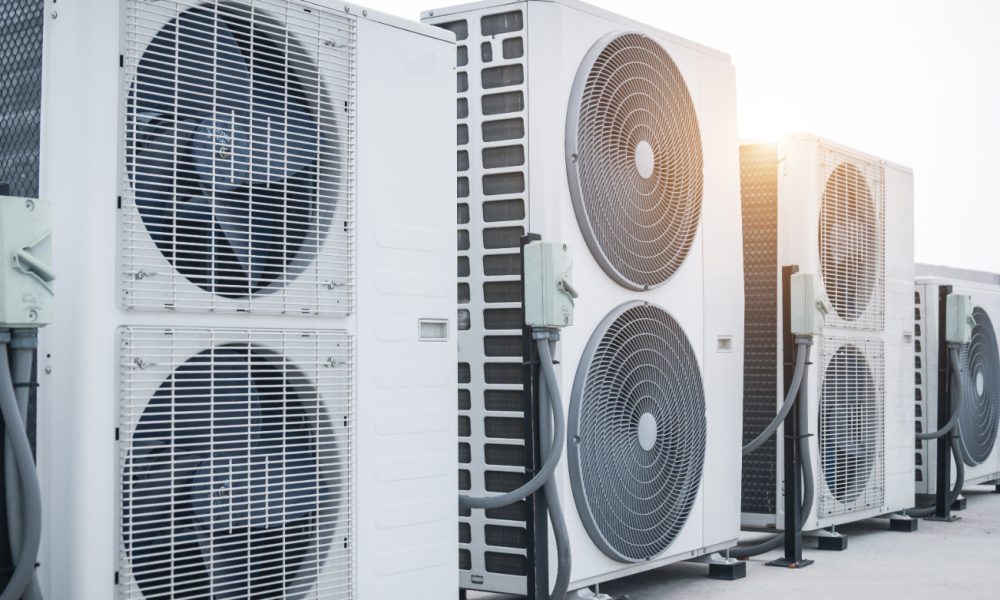What Are Central Ducted Systems?
Central ducted systems are a cornerstone of modern residential and commercial heating, ventilation, and air conditioning (HVAC) solutions. Designed to maintain a balanced indoor climate, these systems distribute conditioned air through a sophisticated network of ducts, covering every nook and cranny of your living or work space. They stand as a beacon of efficiency and uniformity in climate control. For those looking to optimize their home environment effectively, ducted heat pumps can provide a seamless heating and cooling balance.
At the heart of a central ducted system lies its ability to integrate a large central unit capable of efficiently processing large amounts of air. These systems are particularly advantageous for larger structures, ensuring every room receives the appropriate temperature control, eliminating the discomfort of hot or cold spots. Unlike individual room units, central ducted systems promise seamless operation, creating a consistently comfortable atmosphere regardless of the season outside.
Advantages of Central Ducted Systems
Among the standout features of central ducted systems are their ability to provide a comfortable living environment across large areas. By maintaining uniform temperature distribution, these systems alleviate the issue of fluctuating climates often experienced in homes using portable units. They are not just about comfort; they embody efficiency and quiet operation. In particular, efficient ducted heat pumps have become a practical choice for homeowners seeking both performance and energy savings without sacrificing consistent indoor climate control. Moreover, central ducted systems are crafted with aesthetics in mind. The visible components are minimal, often limited to unobtrusive vents, thus preserving the interior decor’s integrity. Furthermore, with advances in integration, these systems can now connect with smart home devices. This connectivity offers unprecedented control, allowing homeowners to adjust settings through smartphones or voice-activated assistants, enhancing convenience and user experience.
Energy Efficiency and Cost Savings
One of the most compelling reasons to consider central ducted systems is their potential for energy efficiency. These systems are engineered to use energy judiciously, translating into lower energy bills for homeowners. The U.S. Department of Energy notes that new energy-efficient models can significantly reduce electricity usage without compromising performance, making them a financially savvy choice.
Advanced central ducted systems incorporate technologies like variable speed motors, which adjust the power output based on the home’s current needs. This saves energy and enhances the system’s lifespan by avoiding unnecessary strain. In an era where environmental considerations are paramount, opting for such systems also contributes to reduced carbon emissions, aligning with global efforts to combat climate change and encourage sustainable living.
Comparison with Other HVAC Options
Choosing the right HVAC system involves weighing the pros and cons of various options. Central ducted systems often stand out for efficiently covering entire homes, unlike portable or window units, which are typically limited to specific areas. According to a review by HomeAdvisor, ducted systems surpass their counterparts in delivering comprehensive climate control and maintaining indoor comfort.
While centralized systems might require a higher initial investment, their long-term benefits and efficiency can offset those costs over time. In contrast, though cheaper upfront, smaller units may lead to higher cumulative energy expenses and can struggle to cope with extreme weather conditions, particularly in larger spaces. Furthermore, users might find the enhanced air quality and reduced humidity levels offered by central ducted systems a compelling reason to choose them over other options.
Considerations When Choosing a System
Selecting the right HVAC system is a decision that should blend practicality with personal preference. Key factors to consider include the size and design of your space, how much control you want over your indoor climate, and your budget. It’s crucial to assess the climate of your locale, as regions with extreme weather might need more robust systems.
HVAC professionals can be invaluable allies in this process. By evaluating your home’s specific needs, these experts can tailor recommendations to ensure the system’s capacity aligns with your requirements, offering an optimal mix of performance and cost-effectiveness. This customized advice ensures you invest in a system that enhances your home’s comfort efficiently and sustainably.
Installation and Maintenance Tips
Installing and maintaining central ducted systems is critical to ensuring long-term success. It’s recommended that installation be handled by certified professionals who can set up the system to perform optimally. A well-installed system can prevent issues arising from improper setup, saving on costly repairs and inefficiencies.
Ongoing maintenance, such as regular filter changes, duct cleaning, and system checks, can further prevent breakdowns and maintain efficiency. Routine checks help identify potential problems early, preventing them from escalating into more significant issues and ensuring consistent performance and energy savings.
Future Trends in HVAC Technology
Looking ahead, the future of HVAC technology promises exciting advancements that blend efficiency with cutting-edge innovation. With growing demand for smart home integration, next-generation systems are likely to offer expanded features, including programmable thermostats and enhanced connectivity options.
The market trend towards sustainable solutions drives the innovation of more eco-friendly and energy-efficient systems. Emerging technologies focus on harnessing renewable energy sources, further reducing the environmental impact of heating and cooling while maintaining or enhancing indoor comfort standards. These developments suggest a future where users enjoy greater control and efficiency, setting new residential and commercial climate control standards.
Conclusion: The Path Ahead
The selection of an HVAC system is a pivotal aspect of ensuring long-term home comfort. Central ducted systems offer compelling benefits through efficient performance, energy savings, and advanced compatibility with modern living requirements. As technological advancements continue integrating into HVAC solutions, these systems are poised to become even more adaptable, making them an enduring choice for homeowners seeking comfort, cost-efficiency, and sustainability in one comprehensive package.

